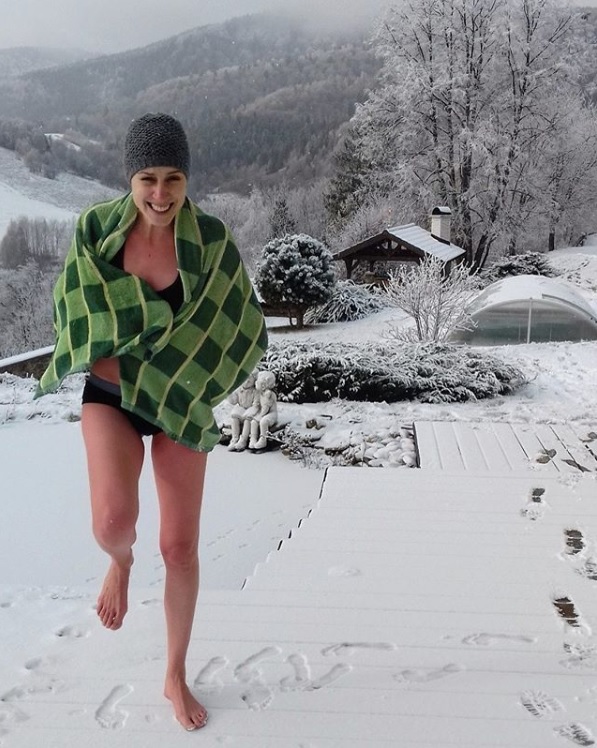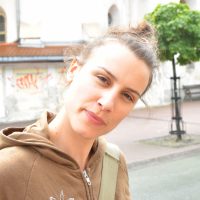Some people are a gift.
They challenge mainstream conventions and show us wiser alternatives.
One such human inspired me to reflect on the most significant developments in my life in 2019. It’s a seemingly ordinary task, but one that makes you dig deep, analyze, and confront your highs and lows. It’s like staring into the mirror and assessing what you are doing with your life and what makes you tick—on a personal and professional level, in society and globally.
These are my top 10.
Find what you love, love what you do:
Quitting my job in April 2018 was the start of some serious thinking about the motives behind our decisions, the limitations of the stories we tell ourselves, and ways for creating livelihoods that are aligned with our values.
I went down the rabbit hole of trying to understand what makes a good life, with all its preconditions and obstacles. Part of the process was closing myself in a cottage in the middle of nowhere with 20 strangers for what was to become the most impactful workshop I’ve ever attended. The work of Ken Robinson, Simon Sinek, and Cal Newport gave me food for thought. And having collected enough courage to push through my doubts, I crept out of the closet and decided to share my writing with others. Ideas need energy, determination, and support to mature into their potential.
It’s all in the gut:
It was becoming increasingly clear that the more I avoided animal and processed products, the better I felt. Not knowing why and eager to dig deeper, I took a course on gut health and my go-to resource became Zach Buch, who is a walking library, not only on the role of the microbiome, but also the connection between soil degradation and human health.
Understanding the link between our gut and our brain, energy, mood, that 70 percent of the immune system lies inside the gut, and how it’s all affected by chemical-dependent agriculture was a whole new level. Joining the dots with how many people around me have food allergies and intolerances of some sort, digestive issues, and auto-immune diseases was both scary and mind-blowing, but it started making sense.
Vegetable growing, preserving, and seed-saving:
I was amazed by the amount of food I was able to grow organically on a small, sloped plot with rocky not-so-fertile soil, without previous experience.
I see growing food as a way to address many of today’s problems that matter to me—eating healthier, eating local, and making ethical food choices, lowering my dependence on the conventional food system, and reducing packaging waste, carbon footprint, and my grocery bill. It’s also humbling to be part of the whole process from a tiny seed to dinner on the plate, and it gave me a new perspective on farmers’ labor and importance of soil health—realizing their role in our well-being, and how often it’s taken for granted. It’s a daily reminder of what is really important to sustain life and how powerful nature is—and that it always wins. We should treat it accordingly.
The climate hell and hope:
2019 was the second warmest year ever recorded in Earth’s history. The last five years were the warmest on record. 2010-2019 was the warmest decade on record. That’s a lot of records. Many lives and biodiversity were lost in countless weather-related disasters globally. Big parts of the world were burning—California, the Amazon, Australia, and even the Arctic contributed to already critical levels of CO2 in the atmosphere. The year ended with a disappointing outcome of the COP25 and 18°C temperatures in mid-December.
But on the bright side, millions of people worldwide marched the streets demanding climate action. An important precedent was set when the Dutch Supreme Court required its government to reduce emissions in line with its human rights obligations, with similar ongoing climate court cases elsewhere. Governments are coming up with mitigating measures, like lowering speed limits on highways and introducing carbon labelling systems for food. My country committed to carbon neutrality by 2050 and pledged to phase out coal generation and mining by 2023—also thanks to our new president who has environmental issues among her mandate’s priorities.
Changing the “us and them” mentality:
I realized we have to quit pointing fingers and waiting—indeed it’s our governments’ duty to mitigate the climate crisis, and introducing public policies might be highly effective, but that doesn’t mean each of us doesn’t have exactly the same responsibility to adjust our actions wherever we can. We can’t expect our politicians and world leaders to work their magic while we keep on doing our business as usual.
If we think carbon tax is a good thing, why wait for the legislation to be passed? Just drive and fly less, or reduce your carbon footprint by adjusting your diet. Instead of waiting for our municipality to take care of the residents’ biological waste, we can agree with neighbors to establish a communal composter. Let’s give ourselves some credit in what we can achieve together and explore the many positive climate actions we can do as individuals.
Breathing and mentors:
Two things I knew only theoretically before they really sunk in during my last meditation retreat: the power of our breath to calm us, and the importance of teachers or mentors.
Breathing is underrated, but it creates space for just being, for grounding ourselves in the here and now, and it teaches us to disengage from what’s going on in our heads and simply observe. I’m grateful for being able to learn from a teacher who embodies the values that seem to be fading out in the modern world—it’s like having your own moral and ethical compass. And looking at the state of our society and planet, it seems like we could use some quality breathing and teachers to guide us to be better versions of ourselves.
Icy water:
Who wouldn’t be tempted by a natural anti-depressant, immunity booster, cardiovascular fitness, and auto-immune disease prevention all in one? Although I enjoy great health, for a long time I’ve had a nagging feeling about how freezing water could be good for me. And oh my, it absolutely is. Two months in, there is still a parallel process of absolute joy and panic inside me every time I enter the water. But whatever worries are in my head, or discomfort in my body, the shock from the cold water makes it all disappear. All that remains is feeling renewed, with endorphins pumping through me.
I’ve heard a spot-on description of the sensation on a podcast: “Sometimes, I don’t like the person who enters the water, but I always like the person who comes out of it.” That’s exactly it.
More doesn’t equal happy:
With my regular work-related travels between two countries, I was repeatedly reminded of the contrasts between the less-developed parts of our world and Western society. From the slow-paced universe of little bakeries, green markets, buzzing streets with people chatting, the elderly enjoying coffee, and kids running around, to a land of billboards selling dreams of luxury cars, fancy apartments, and exotic holidays, new construction on every empty piece of land, streets crowded with shiny SUVs, and life concentrating only around business and shopping centers. But the “abundance” of the Western world doesn’t seem to be followed by people’s satisfaction. Somehow, the more I see a world that is consumption-driven and hurried, the more assured I am that the right way to go is in the opposite direction.
The zero-waste movement:
With all the wealth and prosperity in our society, it makes me hopeful to see how many people are getting curious about the impact of their everyday decisions on the environment, and adopting new, less destructive habits. And it’s not just packaging-free stores popping up in every big town, mobilizing local communities, it’s the zero-waste events, swaps, sharing economy, and local fashion leasing initiatives. Every little business opened means creating a parallel, more ethical alternative to the conventional system, whether it’s food, cleaning products on tap, natural cosmetics, or clothes. The more mainstream it becomes, the clearer the message we are sending to other consumers and businesses: there is another way that is healthier for us and more sustainable for the planet.
Leaving the comfort zone:
After almost two years of a nerve-wracking house hunt and chasing basically one property almost the entire time, things were just not advancing and the feeling of being stuck was creeping in. We had to decide whether to stay or move temporarily to the city. I knew moving would trigger an avalanche of changes, which I unconsciously tried to postpone—life was good where I was, simple, slow, and predictable.
But comfort is hardly satisfying when we get our mind onto something bigger. So, we made the counter-intuitive leap, got out of our comfort zone, and told ourselves, “Things will surely get going then.” And exactly four days after moving, they did. Sometimes it’s good to let go of what we think we want to make space for something better.












Read 4 comments and reply